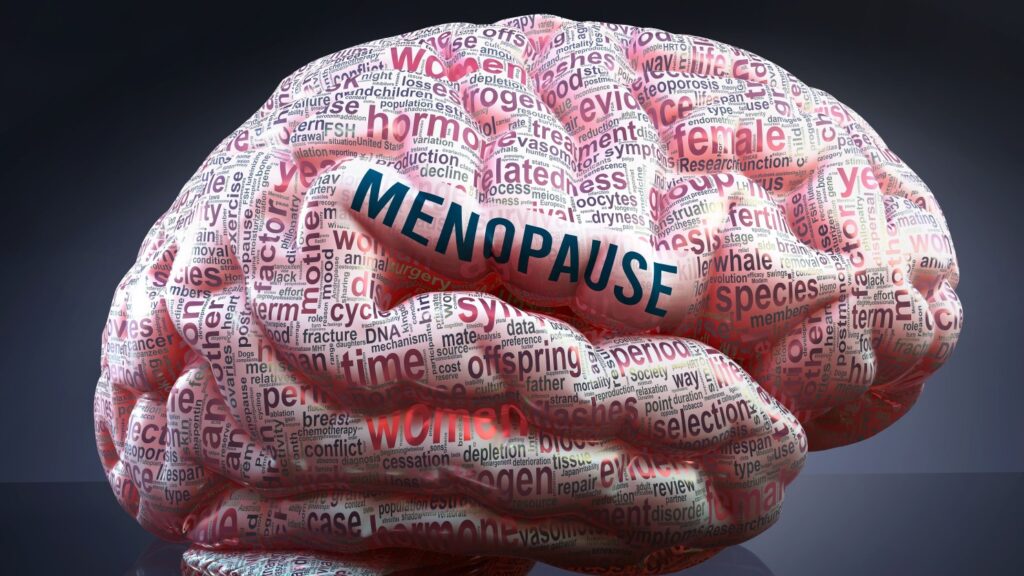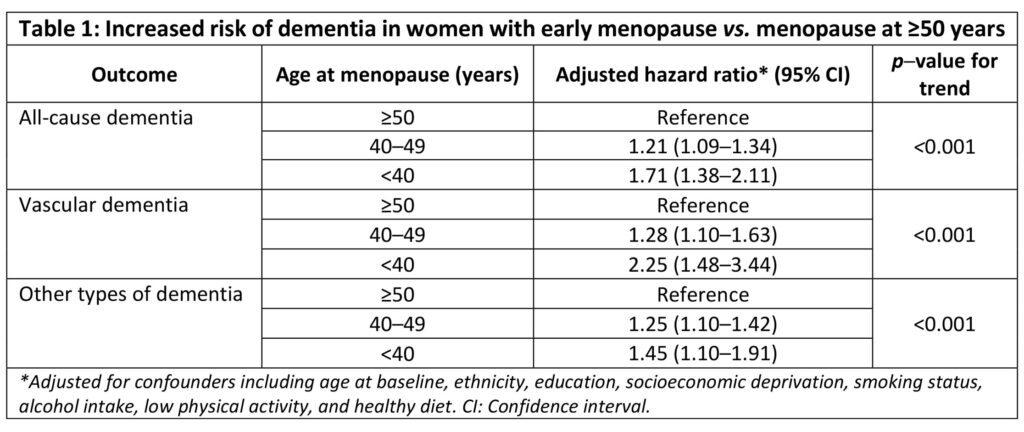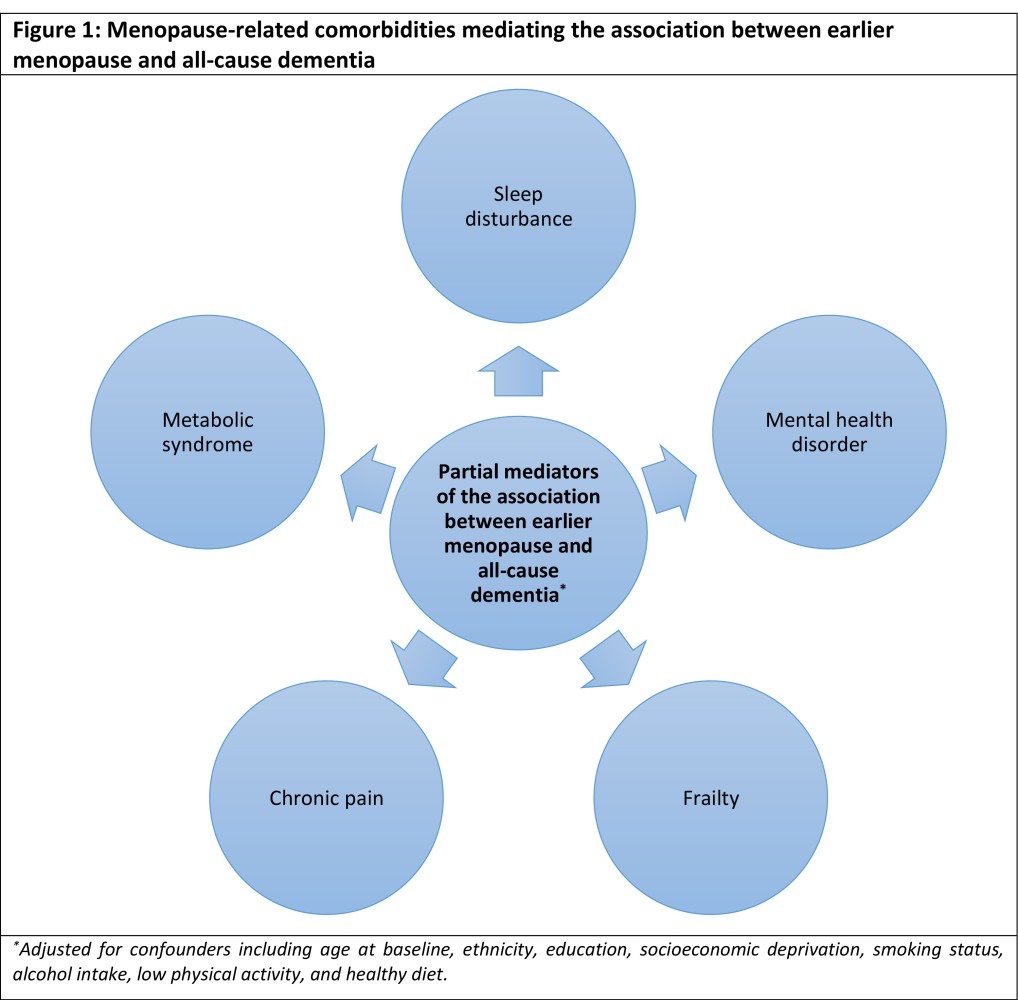
Women who experience early menopause are at a higher risk of incident dementia and deteriorating brain health, according to a recent study by Liao et al., published in the journal “The Lancet”. The study found that earlier age at menopause (before 50 years) was associated with a higher incidence of all-cause dementia and its subtypes including Alzheimer’s disease and vascular dementia, as against menopause occurring at, or after the age of 50.
This community-based cohort study enrolled postmenopausal women without dementia at baseline (n = 154,549; age range: 37–73 years) from the UK Biobank, who were followed-up for 12 years. Women were stratified by their age at menopause: <40 years (n = 6,288), 40–49 years (n = 51,345), and ≥50 years (reference group; n = 96,916). Early menopause was defined as menopause occurring before age 50, while premature menopause referred to menopause occurring before age 40. The primary outcome measure was all-cause dementia in a time-to-event analysis. Secondary outcome measures included Alzheimer’s disease, vascular dementia, and other types of dementia. Additionally, the association between magnetic resonance (MR) brain structure indices and earlier menopause was evaluated, and the potential underlying mediators of the relationship between earlier menopause and dementia were studied.
The main findings of the study are discussed below:
- A total of 2,266 incident dementia cases were reported during a median follow-up of 12.3 years. Of these, 1,327 (1.37%) cases occurred in the ≥50 years group, 788 (1.53%) in the 40–49 years group, and 151 (2.40%) in the <40 years group.
- The risk of all-cause dementia, after adjusting for multiple confounders, was 21% higher in the early menopause group (40–49 years) and 71% higher in the premature menopause group (<40 years) compared with the reference group (menopause ≥50 years; Table 1).
- The risk of vascular dementia was highest compared to other types of dementia among early menopausal women. A significant association was also noted between early age at menopause and other types of dementia (Table 1).
- Brain imaging data revealed a negative association of early menopause with brain MR global and regional grey matter indices and a positive association of early menopause with white matter hyperintensity.The strongest associations were seen in the frontal, parietal, temporal lobes, the putamen, pallidum, thalamus, hippocampus, and the brain stem.
- The association between earlier menopause and dementia was found to be partially mediated by certain menopause-related comorbidities, after adjusting for potential confounders (Figure 1).
- Of note, the higher risk of dementia in women with earlier menopause was not influenced by the type of menopause (natural vs. surgical) and the use of hormone replacement therapy or its initiation time.


Clinical implications
- The deteriorating brain health findings in women with earlier menopause and the mediating effect of various postmenopausal comorbidities suggest possible pathophysiological mechanisms underlying cognitive decline.
- These findings have implications for the primary prevention of dementia. Nevertheless, further research is warranted to explore the underlying mechanisms and to determine the approach for preventing earlier menopause that would consequently alleviate the risk of incident dementia.
(Source: Liao H, Cheng J, Pan D, Deng Z, Liu Y, Jiang J, Cai J, He B, Lei M, Li H, Li Y, Xu Y, Tanga Y. Association of earlier age at menopause with risk of incident dementia, brain structural indices and the potential mediators: A prospective community-based cohort study. eClinicalMedicine. 2023;60:102033. doi: 10.1016/j.eclinm.2023.102033)
